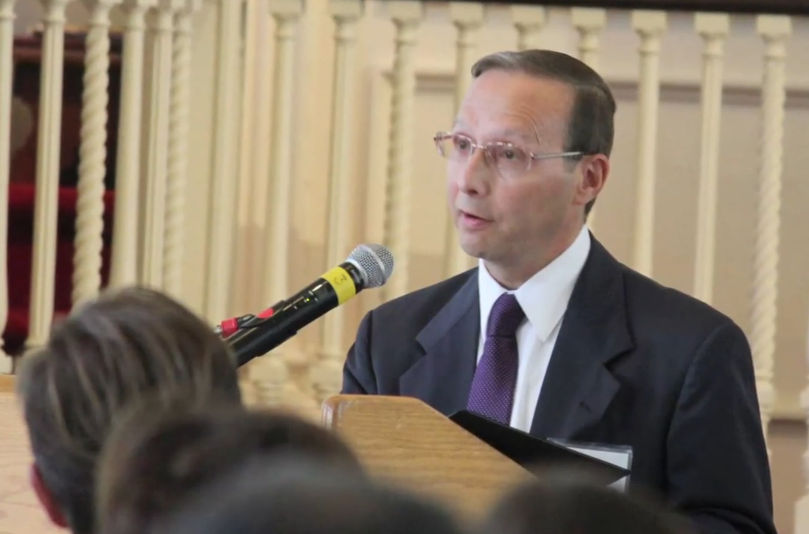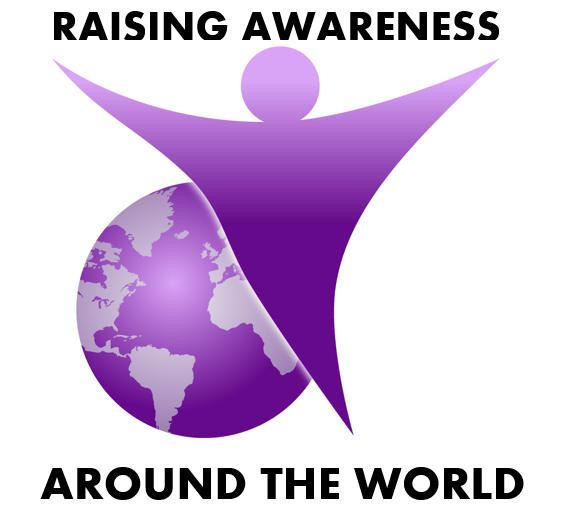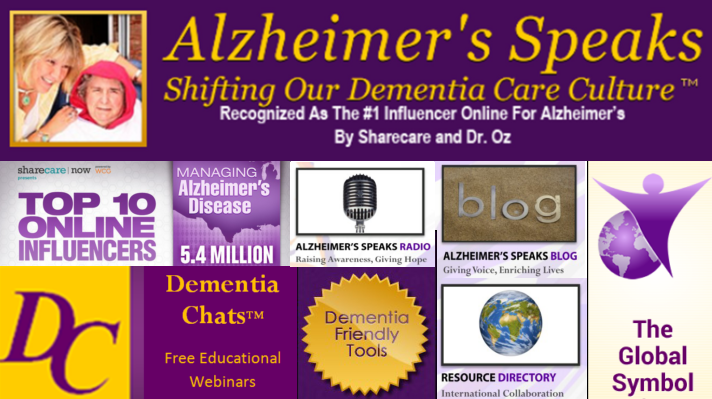The Purple Angel Project Goes To NAPA April 29th 2pm EST
 Michael Ellenbogen will be presenting to NAPA Committee (National Alzheimer’s Project Act) asking them to get behind and support the Purple Angel symbol which is the new global symbol for dementia. No longer is it acceptable for countries, organizations or individuals to be divided on this issue. The disease touches far too many people, both those diagnosed as well as their family, friends, co-workers and communities.
Michael Ellenbogen will be presenting to NAPA Committee (National Alzheimer’s Project Act) asking them to get behind and support the Purple Angel symbol which is the new global symbol for dementia. No longer is it acceptable for countries, organizations or individuals to be divided on this issue. The disease touches far too many people, both those diagnosed as well as their family, friends, co-workers and communities.
Please send emails to support the Purple Angel Project to
napa@hhs.gov
after 2 PM eastern time on the 29th of April.
It is in the worlds best interest to join forces and use one symbol to describe and help raise awareness for the various types of dementia: Alzheimer’s disease, Lewy Body Dementia, Frontotemporal Dementia, Vascular Dementia and all the others.

Lori La Bey, founder of Alzheimer’s Speaks is asking our readers to send emails of support for the Purple Angel Project. We need one logo, “The Purple Angel” to represent all dementias. We need the globe to embrace, understood and accept the importance of dementia and how it has a ripple effect throughout communities and families.
Please send emails to support the Purple Angel Project to
napa@hhs.gov
after 2 PM eastern time on the 29th of April.
Here is a copy of Michael’s speech.
December 11, 2013 was a great day for those living with dementia. That was the day of the G8 Dementia Summit. Many became energized that day; motivated to find a cure for dementia and to improve the lives of those who are living with the disease. They realized the importance of including those living with the disease in the process. And although I am disappointed that the US did not take the lead in this world health crisis, it was still a huge step in the right direction, and there is no reason why we cannot catch up.
We need to create jobs in the scientific world and keep the money and the brightest minds here. We could use the HIV model that was so successful. The long-term gain will be a huge return on the money invested plus the many lives we save. While we have some great plans in place we must push harder for funding and make the hard choices.
Please keep this momentum going and do not be afraid to rock the boat for this cause. That is the only way we will win this battle.
In February I submitted my state Alzheimer’s plan to the governor for approval. There are many other states that have plans or are creating plans. There are some states that have not even started. We need a system in place that identifies what states are doing in relation to dementia. We should have some kind of rating system focusing on the plans and their execution. This will give states an incentive to do better and not fall behind. It will also give others a place to go and use the best model and even encourage competition.
Please encourage Congress and Senators to sponsor the Alzheimer’s Accountability Act (S. 2192/H.R.4351), which requires scientists at the NIH to submit an annual Alzheimer’s research budget proposal directly to Congress and the president, specifying the resources needed to fully implement the National Alzheimer’s Plan without political and budgetary restrictions.
Background:
Congress unanimously passed the bipartisan National Alzheimer’s Project Act (P.L. 111-375) in 2010. The law instructs the Department of Health and Human Services (HHS) to develop a strategic plan to address the rapidly escalating Alzheimer’s disease crisis. The annually updated National Alzheimer’s Plan must be transmitted to Congress each year and is to include outcome-driven objectives, recommendations for priority actions and coordination of all federally funded programs in Alzheimer’s disease research, care and services. The plan also includes the goal of effectively treating and preventing Alzheimer’s by 2025.
However, the one missing piece in this plan is a projection of the level of funding necessary to reach the critical goal of effectively treating and preventing Alzheimer’s by 2025. The Alzheimer’s Accountability Act represents a bipartisan effort to ensure that Congress is equipped with the best possible information to set funding priorities and reach the goal of the National Plan to Address Alzheimer’s Disease – effectively preventing and treating Alzheimer’s by 2025.
For every $100 that the National Institutes of Health (NIH) spends on Alzheimer’s research, Medicare and Medicaid spends $26,500 caring for those with the disease. Unless something is done, Alzheimer’s will cost an estimated $1.2 trillion (in today’s dollars) in 2050. Costs to Medicare and Medicaid will increase nearly 500 percent. This is outright foolish and we must change this course.
By now you will all be familiar with the 2014 Facts and Figures book from the Alzheimer’s Association. I was disappointed because for some reason they have chosen to be conservative with the numbers, which are actually far worse than those reported. We should also be incorporating all dementias not just AD. I am aware of the negativity that surrounds these diseases, but I think this is the only way people will understand.
Every four seconds someone gets a death sentence. Not from a judge in a courtroom, but from a doctor in a consulting room. No one is immune to this disease, and once you get it there is no turning back. There are no life-saving medicines, no therapies, no hope. All that is guaranteed is a brutal, undignified death.
So what is being done about this global health crisis? Well the short answer is: not a lot!
It seems that the government is just standing by and watching us die.
More than 500,000 people die every year from Alzheimer’s, that’s more than the number killed by breast cancer and prostate cancer. And yet it is not given the focus, research or funding that cancer receives, which is distressing since there is a 98% survival rate for breast cancer sufferers and a 0% survival rate for those with Alzheimer’s.
There are no survivors, no one to stand up and say I had this disease, but thanks to the wonders of medical science I am cured and free to live a normal healthy, productive life.
Even those with terminal cancer can talk about their disease and how it affects them and their loved ones. But what if you have no voice? Alzheimer’s robs you of that luxury along with being able to write.
We need to get those who control the purse strings to prioritize spending, to fund projects into research, develop medications, therapies etc. We need to act now, we need your help, we need to have hope.
I have heard representatives from many organizations speak at these meetings, and I sometimes feel they see it as an opportunity to advertise their company or organization. I think they forget why they are here.
Many speakers represent those living with FTD, Down Syndrome, and Lewy Body, as well as other forms of dementia. What I find interesting is that although they are all involved in the same cause they all seem incapable or unwilling to join forces with other organizations and work together. It seems they feel that their cause or issue is more important. My message to them and others is this: it is not about your organization, it is about the people you represent.
It amazes me that many people still don’t know about NAPA, those who do should share this information so others living with the disease have the opportunity to be heard. I have been coming to these meetings for a long time, and I rarely see any other attendees who are also impacted by Alzheimer’s/dementia. In fact it was I who brought someone along with me to speak at the last meeting. As organizations representing people living with dementia, it is your job to invite them to these meetings.
It is imperative that you see and hear the people who are living with this disease. The committee has to realize we desperately need your help, and it is only through your work and the work of others that we will get to a cure. So please provide information about these meetings on all your websites, and encourage participation from everyone, you know many of these people, pick up the phone and find a way to bring them here. It’s because of them you are doing this.
Finally, please join us in using the Purple Angel World logo on your websites and awareness campaigns as a symbol of support for enhancing dementia awareness, hope, and empowerment for all. This symbol represents all types of dementias. The Purple Angel was created in Great Britain to become the universal symbol, representing our united support, joining together to raise dementia awareness on a global basis; as well as our hope that, one day, researchers will find a cure! This is a grass-roots campaign driven by the people living with the disease and their care partners.
Please Adopt ONE symbol that will come to represent our global message and mission of RAISING awareness, HOPE, and EMPOWERMENT FOR ALL PEOPLE LIVING WITH DEMENTIA, THEIR FAMILIES, AND THEIR CARE PARTNERS. Let’s stop the confusion.
One final concern. When NAPA was started all of the written public comments were displayed on the NAPA web site. About 6 months ago you were behind on updates. I was told you were in process of updating the information and it would be available in a few weeks. This went on a few more times. The other day all of the public comments seem to have been removed and no further updates have been seen for about a year now. I see this as an issue because these comments should always be available on the web site for all to read.




Reblogged this on Lynda Converse and commented:
My experiences over the past few years have proven to me the most valuable effort with regard to dementia is sharing our journey and allowing others to share theirs. We have no cure. We can help each other when we share and do all we can to secure funding for more research to find the cause and a cure for these dreaded diseases that rob us of our loved ones while they are still alive.